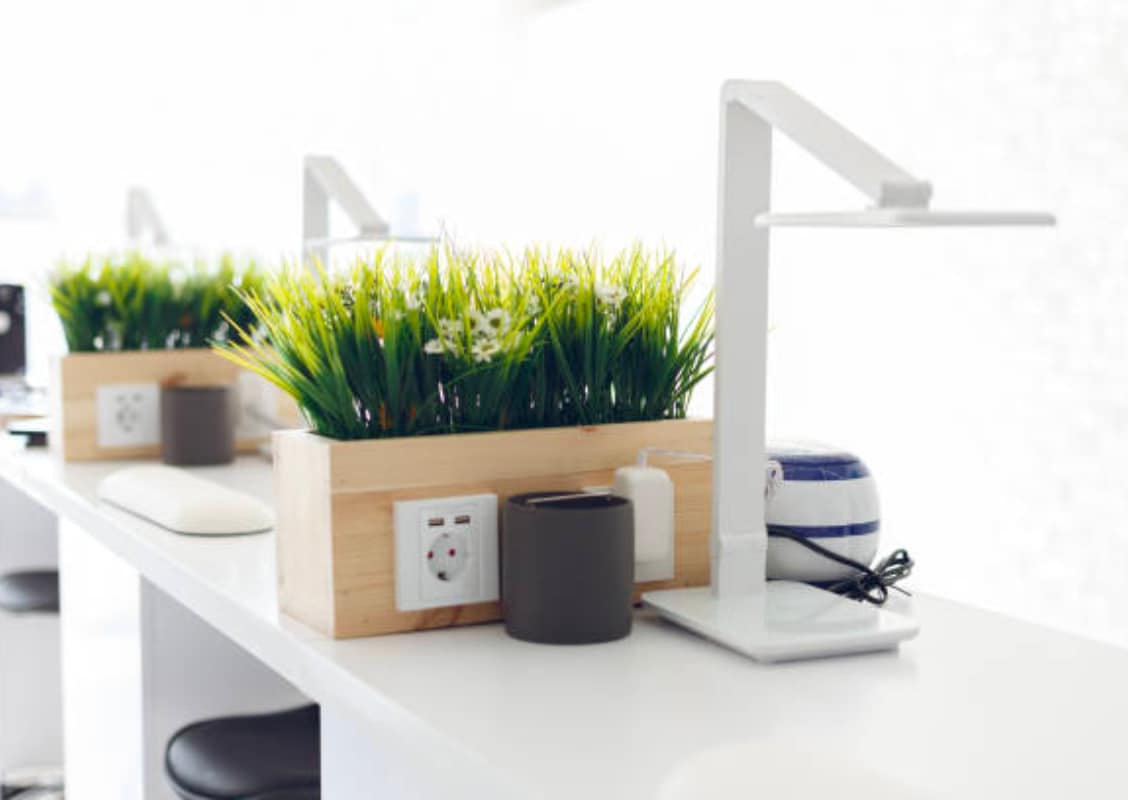Businesses are increasingly pressured to generate profits and contribute to our planet's sustainability in our fast-paced global economy. The growing urgency of climate change and the societal push towards sustainability have turned green initiatives from an option to a necessity. And the switch to a greener business can start right in the office.
A simple yet impactful way for businesses to become more environmentally friendly is by considering their office furniture, specifically standing desks. This might seem like a small step, but it quickly adds up when you consider the number of desks in an office and the number of offices worldwide. But are all standing desks created equal when it comes to the environment?

Why Standing Desks
Standing desks, particularly height-adjustable ones, have gained widespread popularity recently. Much of this is due to the health benefits associated with them. They promote better posture, encourage more movement, and can even increase productivity by keeping workers more alert. But an often overlooked benefit of standing desks is their environmental efficiency.
Traditional office seating involves many non-biodegradable or non-recyclable materials, like foam and plastic. Standing desks, especially with active seating options or adjustable stools, can reduce this material use. Additionally, standing desks often have a smaller footprint than traditional desks, improving the efficiency of office space usage and potentially reducing energy consumption.
What Are Eco-Friendly Standing Desks?
So what makes a standing desk eco-friendly? Firstly, it's the material. Eco-friendly standing desks are made from sustainable or recycled materials, reducing the demand for harvesting new resources. Secondly, it's the manufacturing process. The production of eco-friendly standing desks aims to minimise waste and reduce energy consumption.
This is achieved through efficient manufacturing processes and renewable energy sources wherever possible. Lastly, the end product is designed to have a minimal environmental impact. This could mean that it's recyclable at the end of its life or built to last longer, reducing the need for replacement.
Material Matters: Sustainable Materials for Standing Desks
Choosing standing desks made from sustainable materials is a significant step towards a greener office. Bamboo is a popular choice due to its rapid growth rate and durability. Similarly, reclaimed wood, which uses timber already cut for other purposes, is an excellent eco-friendly option.
Other desks are made from certified wood, which comes from forests that are responsibly managed to maintain biodiversity and prevent deforestation. By choosing standing desks made from these materials, businesses contribute to reducing deforestation and promoting biodiversity.
The Production Process: Sustainability Beyond the Material
While materials are a major factor in the eco-friendliness of a standing desk, the production process plays an equally important role. Manufacturers committed to sustainability focus on minimising waste during production, often by implementing lean manufacturing principles.
They also use energy-efficient machinery and renewable energy sources, reducing the carbon footprint of their production facilities. Finally, they strive to create safe and healthy working conditions for their employees, recognising that human sustainability is as important as environmental sustainability.
Reduce, Reuse, and Recycle: End-of-Life Management of Standing Desks
An often overlooked aspect of product sustainability is what happens to it at the end of its life. Many standing desks are designed with this in mind, incorporating recyclable materials and design features to allow easy disassembly.
This means that at the end of the desk's life, instead of ending up in a landfill, its parts can be separated and recycled, giving the materials new life. This circular approach to product life reduces the product's environmental impact and contributes to a more sustainable office.
Standing Desks and Energy Consumption

While standing desks benefit employee health and workplace efficiency, it's also important to consider their energy consumption. Electric height-adjustable desks, for example, do require power to operate. However, their energy consumption is relatively minimal, especially compared to the electronic equipment in the office environment.
Some standing desks even come equipped with energy-saving features, such as automatic standby modes that kick in when the desk is not in use, reducing their energy consumption even further. If minimising energy use is critical to your green strategy, consider manually adjustable standing desks. These desks offer all the ergonomic benefits but don't consume any electrical power, providing an excellent balance between employee comfort and energy efficiency.
Documentation and Certifications: Verify Before You Buy
When purchasing eco-friendly standing desks, businesses should check for environmental certifications. These certifications, such as the Forest Stewardship Council (FSC) for wood products, guarantee that the product meets certain environmental standards. They can provide peace of mind and protect against greenwashing.
Greenwashing, the practice of making misleading claims about the environmental benefits of a product, has unfortunately become common as businesses seek to capitalise on the trend towards sustainability. By looking for reputable certifications, businesses can ensure they're making a truly eco-friendly choice.
Budget-friendly Eco-friendly: Making the Green Switch Affordable
Many businesses hesitate to go green because of the perceived cost implications. While it's true that some eco-friendly products may have a higher initial cost, they can prove to be more economical over time. Eco-friendly standing desks, for example, are often more durable, reducing the need for frequent replacements. They can also save businesses money in disposal costs as many are designed to be recyclable at the end of their life cycle.
Furthermore, investing in eco-friendly initiatives can enhance a company's brand reputation, attracting eco-conscious customers and employees. Additionally, some local or national government bodies offer grants or tax incentives to companies taking steps towards sustainability, making the financial aspect of the green switch even more appealing.
Conclusion
Choosing eco-friendly standing desks is a step in the right direction for businesses seeking to reduce their environmental impact. It's an action that benefits the planet and the health and productivity of employees. But remember, it's just one piece of the puzzle.
True sustainability requires a holistic approach, considering all aspects of the business, from energy consumption to waste management, supply chain sustainability, and beyond. Every little bit helps, and each green choice contributes to the momentum of the global movement towards sustainability. Make the switch to eco-friendly standing desks and join the green initiative today.